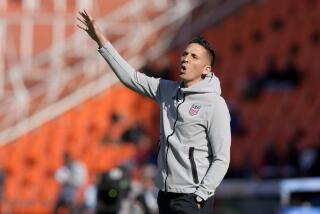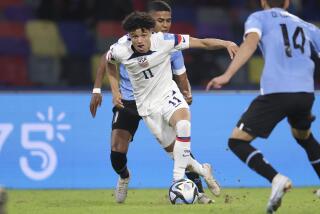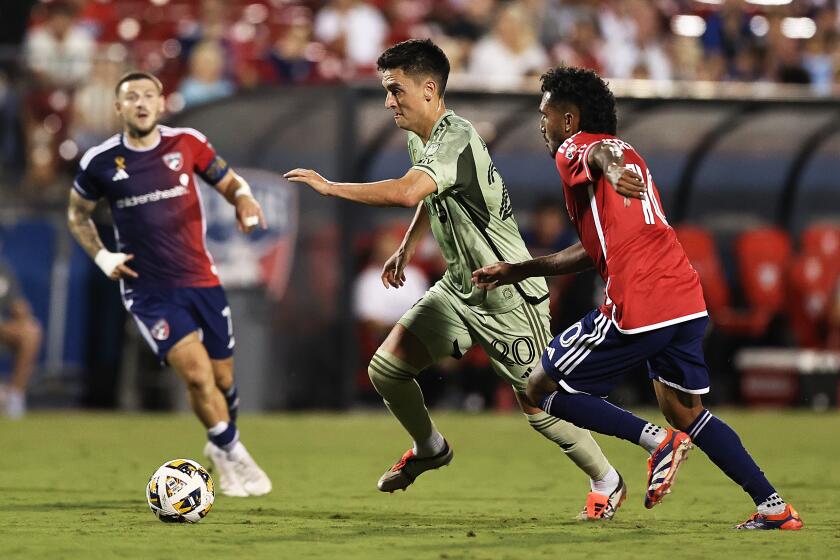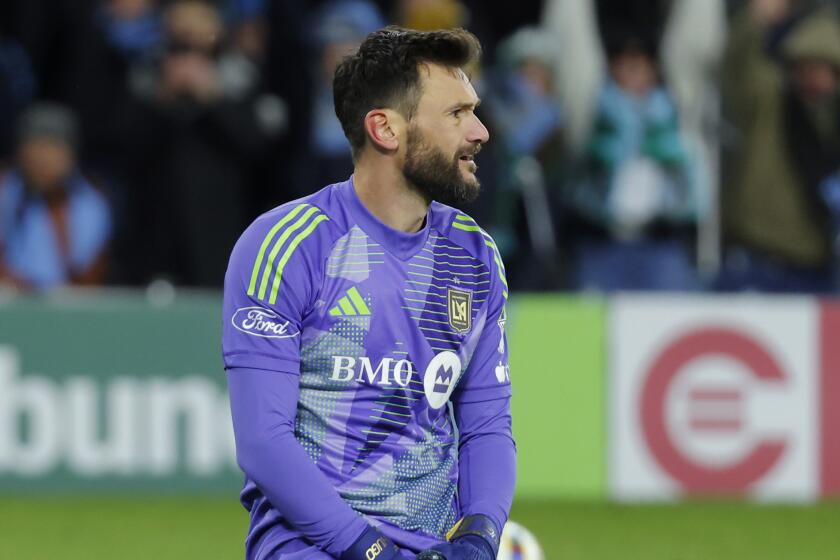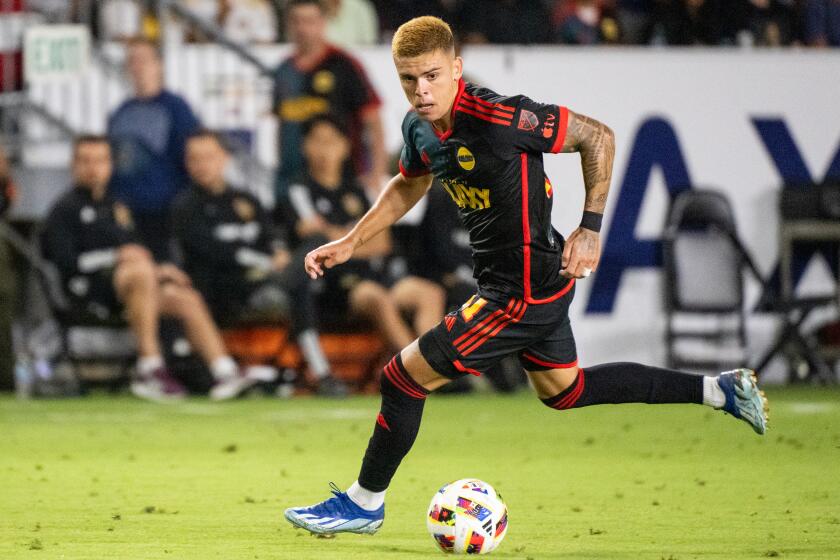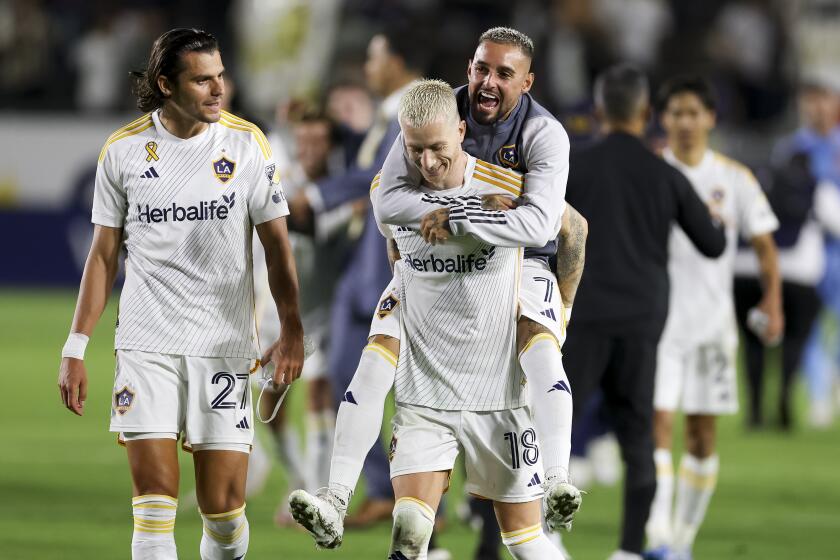Young center backs on U.S. soccer team have a big responsibility
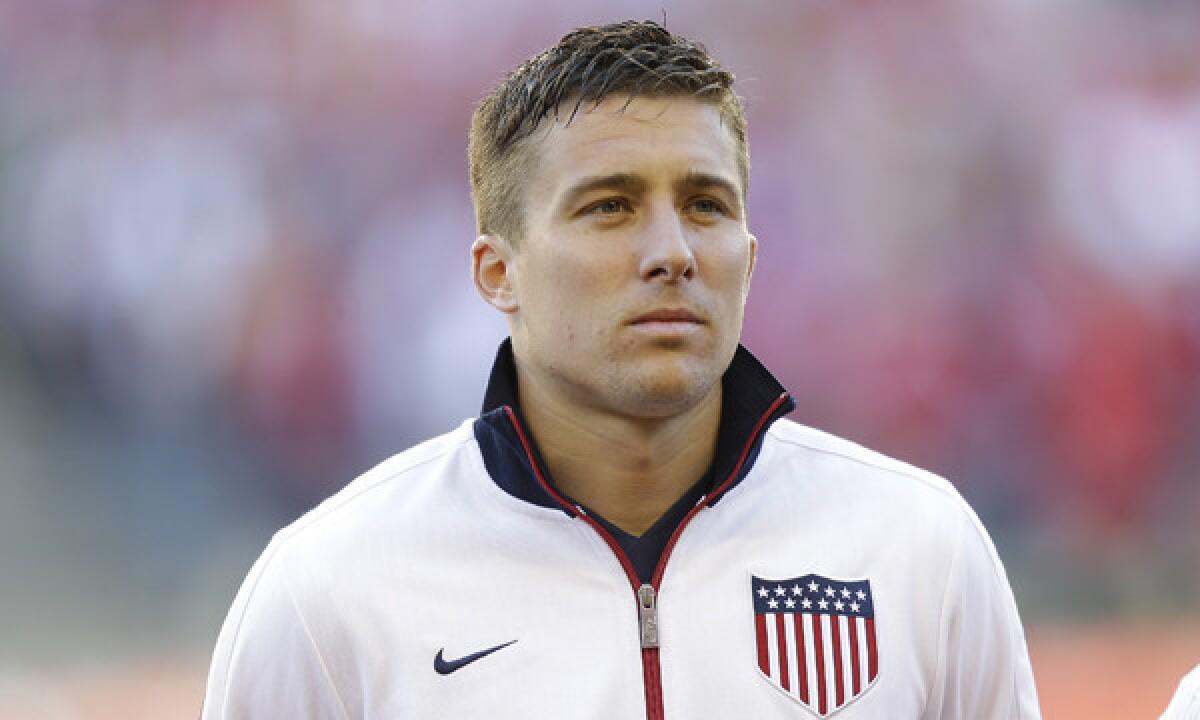
Before last year, Matt Besler had never played a game for the U.S. soccer team. And when he finally earned his first start, he played next to the Galaxy’s Omar Gonzalez, who was making only his third international appearance.
Now 14 months and 26 combined caps later, both could be starting in Brazil in June, becoming the two most inexperienced center backs to play in a World Cup opener for the U.S. since 1950.
That’s news Gonzalez greets with a smile and a shrug.
“I guess it’s kind of cool. Stats are obviously cool, right?” he said. “As far as it meaning anything, I don’t think it does. Every game we treat the same way and it’s just another opportunity to get better.”
U.S. Coach Juergen Klinsmann is hoping that happens quickly. Because while goals win games at the World Cup level, miscues on defense lose them, and that leaves the Americans’ green back line with little room for error.
“Mistakes, one or two on the international level, will get punished and you’re going to go home,” Klinsmann said. “This is something that we try to tell them. In every position but especially in the back line. We can’t allow … mistakes there.
“You have to be on top of your game, 90 minutes, highly focused.”
At times Gonzalez and Besler have been just that. In the first four World Cup qualifiers they started together, the U.S. was unbeaten, giving up only one goal.
But at other times the team looked tentative and uncertain, which led to decisive goals in the only two qualifying losses in Honduras and Costa Rica.
Both players say those games provided painful but beneficial lessons.
“I think I’ve grown as a player,” said Gonzalez, 25. “No game is the same so every game brings something new and you think ‘Hey, I could have done better there.’
“So the more games you get, the more you get comfortable with international play.”
Besler agrees.
“With the national team, everything is raised. The expectations, the pressure, the speed of play, the mental side of the game,” said the 27-year-old from Sporting Kansas City who, like Gonzalez, is a former Major League Soccer defender of the year. “Hopefully, you don’t make too many mistakes. But if you do, you’ve got to learn right on the fly. That’s a requirement at the international level. Because if you make the same mistake a couple of times, then you’re probably not going to get too many more chances.”
Except that Klinsmann may not have too many other choices. With Wednesday’s friendly against the Ukraine being the last full-squad game before May’s deadline to pick a provisional World Cup roster, the list of challengers at center back is a short one led by Stoke City’s Geoff Cameron, Clarence Goodson of the San Jose Earthquakes and two-time World Cup veteran Oguchi Onyewu of Sheffield Wednesday, who is coming back from injury.
But Cameron is a likely starter on the right side. And if Onyewu isn’t fit, the talent level drops off sharply after Goodson to Puebla’s Michael Orozco and seldom-used John Brooks of German club Hertha Berlin.
Gonzalez and Besler weren’t called up for the Ukraine game, giving the U.S. coaching staff a final chance to look at Cameron, Onyewu and Brooks. Unless one of them proves especially impressive, though, Klinsmann will return to the U.S. to try to straighten the learning curve for his young central defenders.
“For players like Omar and Matt the biggest challenge is getting used to the speed of play on the international level. But also the mental speed,” Klinsmann said. “To read things ahead of time. To position yourself into areas where the play is probably going to come.
“Anticipate things. And be alert and never allow mistakes.”
Especially in a World Cup. Four years ago in South Africa, only 16 of the 64 World Cup games were decided by more than one goal, and the final was scoreless for 116 minutes. So during the national team’s January camp, Klinsmann schooled Besler and Gonzalez on little things that make a difference, like patiently playing the ball out of the back.
“You’re pretty much done … if your center backs make a passing mistake in the defensive third,” Klinsmann said. “That’s where we kind of push them to be far more alert, far more forward thinking. Confidence is a big issue.
“And this is something that challenges them.”
A challenge Gonzalez, for one, welcomes.
“It’s great getting that kind of feedback on what he wants me to work on,” he said. “Sometimes in the past, I’d just go through the camp wondering, ‘Man what is this coach thinking? Am I doing good? Am I doing what he wants?’
“But now Juergen’s actually telling us, ‘We want you to play out of the back. We want you to dribble up with the ball. Make an outlet pass. Make them come toward you to open up another passing lane.’ I feel like with him, the long ball’s the last resort. And it’s something that I think we’re all getting better at.”
Twitter: @kbaxter11
